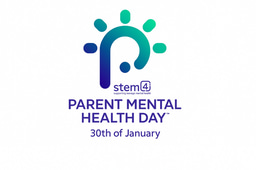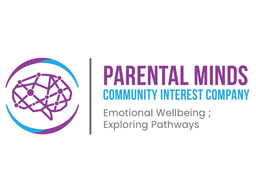From Submissions to Support: A Day in the Life at ISRCTN
Published in Biomedical Research

Marking Clinical Trials Day 2025 with a look behind the scenes of the UK’s clinical study registry.
Morning: Coffee, Clinical Trials, and Editorial Triage
My day starts with a strong coffee and a look at the ISRCTN editorial dashboard. The volume of submissions and update requests can vary wildly, so mornings are all about triage. As a senior editor, I’m part of the team responsible for reviewing new clinical trial registrations as they come in. We assess each submission to make sure it meets the requirements for a WHO-recognised registry, checking for ethical approval, clarity in study design, and consistency across the record. This is the heart of our editorial work: ensuring everything that gets published is accurate, transparent, and useful to the wider research community.
Alongside this, I’ll be responding to emails from trialists—clarifying queries, guiding them through the process, or following up on previous submissions. On certain days, I’m also on the rota for handling update requests. These come from researchers who are actively managing their studies and need to revise their records, whether it’s a change in recruitment status, timelines, or outcome measures. It’s a fast-paced start to the day, but it’s rewarding to know we’re helping researchers keep their studies visible and trustworthy.
Midday: Reviewing Registrations and Raising Queries
By midday, I’m usually deep into reviewing new study registrations. Each submission is different. Some are straightforward, others need a bit of detective work. I check for all the essentials as defined in our submission definitions. 
If something’s missing or unclear, I’ll raise a query with the trialist. It’s not about catching people out—it’s about helping them present their research clearly and in line with international standards. Sometimes we’ll go back and forth a few times to get everything right.
I really enjoy this part of the job—it’s collaborative, and you get a real sense of the diversity of research happening across the UK and beyond. From pilot studies in primary care to large-scale international trials, every record tells a story. And behind each one is a team of researchers juggling the demands of running a study while also meeting transparency requirements. Our job is to support them in that, and make sure the public record reflects the most accurate version of their work.
Afternoon: Outreach, Opportunity, and Opening Doors
Afternoons often shift from editorial work to engagement. As part of this, we use social media to connect with current and potential registrants, tweeting newly registered studies and published results, and commissioning blog posts from researchers for awareness campaigns that align with their work.
One area I’m especially focused on is supporting under-served researchers, those working in fields like social care or observational research, where clinical trial registration can feel confusing, irrelevant, or overly burdensome.
These researchers are often doing vital work but may not realise that registration applies to them, or how it can benefit their study’s visibility and impact. I’m keen to change that. This month, I’ve got a last-minute opportunity to attend the NIHR School for Social Care Research (SSCR) conference in York. I’m hoping to connect with communications managers and researchers to better understand their experiences and perceptions. What’s putting them off? What support would make a difference? These conversations could lead to co-developing clearer guidance or even setting up a public involvement group to shape how we communicate registration requirements.
I may not be out in communities or care homes myself, but I can help reach the researchers who are and make sure they feel seen, supported, and included in the wider research transparency movement.
Continuing the Conversation
As we look ahead, the importance of registering clinical studies has never been more vital. With the pivotal Medicines for Human Use (Clinical Trials) (Amendment) Regulations coming into effect in April 2026, for the first time in UK law, it will be a legal requirement to register trials on a WHO-recognised public registry and publish results summaries. It’s a major step forward for transparency, trust, and ensuring research truly benefits the people it’s designed to help. At ISRCTN, we’re proud to play a part in that progress, supporting open, accessible, and accountable clinical research every day.
Got questions about registration—big or small? Drop me a message! I’m often working from home with Koko the cat supervising from the windowsill or asleep on the bed, and together we’re always happy to help.

Poster image: Exploring the world around us (© Sergey Nivens / Stock.adobe.com)
Follow the Topic
-
ISRCTN: The UK’s Clinical Study Registry

A primary clinical trial registry recognised by WHO and ICMJE that accepts studies involving human subjects or populations with outcome measures assessing effects on human health and well-being, including studies in healthcare, social care, education, workplace safety and economic development.





Please sign in or register for FREE
If you are a registered user on Research Communities by Springer Nature, please sign in